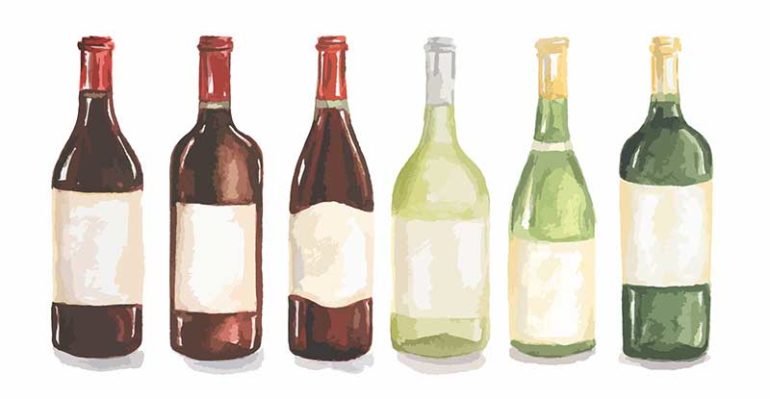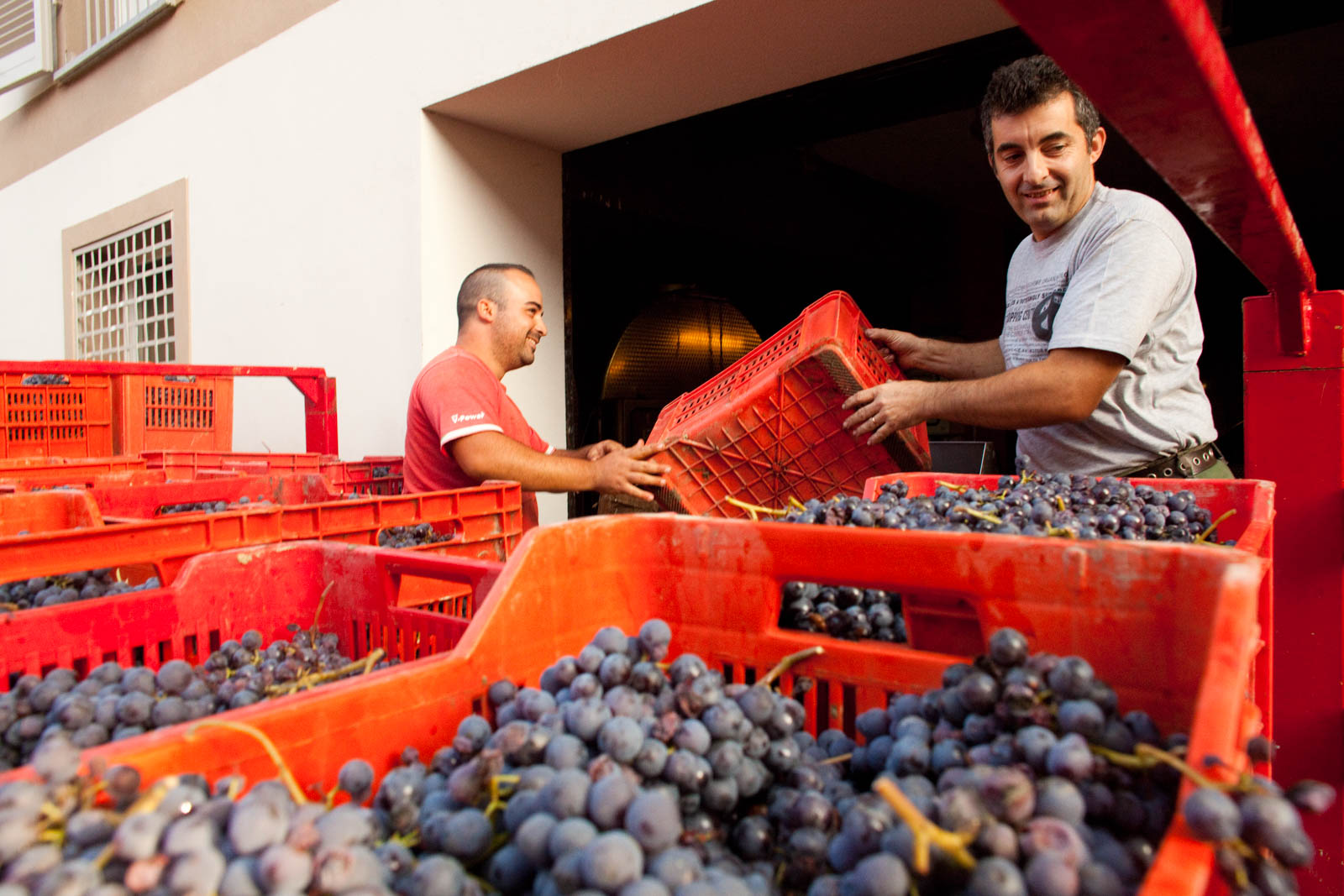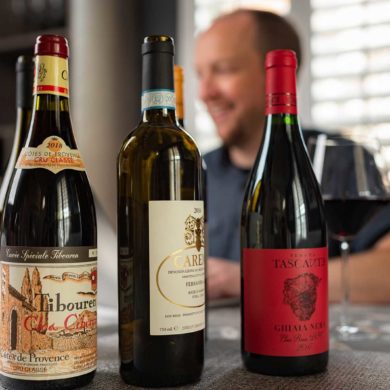
Editorial Policies and Ethics
This website is independently owned and operated by Headwaters Content LLC. All editorial decisions are finalized by its owner and the Editor-in-Chief of Opening a Bottle, Kevin Day.
This publication, like many on the internet, started off as a personal blog (in 2014). Since I have only minimally removed old content from the site, you may encounter articles and stories that did not fully conform to the outline policies below. But throughout this time, one policy has been the same: I do not sell any advertisements or placements within articles. Furthermore, I never use A.I. to generate any content. (Whether A.I. steals my content is another matter).
Opening a Bottle continues to be 100% funded by our subscribers. That means my reader-supported revenue partially funds (a) my travels, (b) purchasing many of the wines I review, (c) paying my occasional contributors at or near the industry-standard rates, (d) all of the photography and illustrations I use to jazz up the site, and (e) web hosting and web maintenance costs.
My Supporters
A majority of my supporters are individual consumers and "wine obsessives" who want to hear an independence voice on what matters most in European wine.
But I also have professional subscribers with a commercial interest in promoting specific wines or wine regions. This includes consortiums, importers, distributors, press agencies and even some wineries. Restaurant groups and wine schools also account for this professional subscriber base.
With their subscription they get some perks: (a) five accounts to log-in, (b) the ability to republish our work to promote their wines, (c) the ability to make a paywall article public, and (d) a custom brand page for their business (or a client) that aggregates relevant content supporting their wines or the work they do. The content for the brand page is written by me, and in select cases, they are allowed to customize what gets aggregated, such as a wine school choosing to select articles that support their educational classes. However, these follow a set format that is not open to revision.
I never guarantee editorial coverage to professional subscribers, and certainly do not guarantee any favorable reviews. However, professional subscribers can enjoy a more open pipeline of communication and collaboration. That often means they are the first entities I contact for samples requests and networking with wineries I want to visit — however, they do not have exclusivity on this, and my editorial interests will always drive the direction of such requests. They are also willing partners to help support and furnish local Opening a Bottle events surrounding the topic of European wine.
The Bottomline: all editorial is still at the discretion of the Editor-in-Chief.
How I Select Wines for This Publication
My primary goal is to make wine a little less opaque for my readers and subscribers, but also to spotlight specific wines of unique character that exhibit a distinct sense of origin.
This has led me to cover mostly appellation-based European wines — especially from Italy, France, Austria and Spain.
I have a soft spot for traditionally made wines; for multigenerational family winegrowers and the risks they have to take; for improbable vineyards on steep slopes or active volcanos or isolated islands; for old vines that look like trees; for innovative new techniques in the winery as well as rediscovered ancient ones; for biodiversity and the use of organic and biodynamic practices to foster healthy vines; for wines that can live a long life in a cellar (or, most relevantly, can still be telling stories days after they've been opened).
These traits, and why they matter, are celebrated through the use of icons across the site.
If a wine doesn't fit at least one of these attributes, I am likely not interested in seeking out the wine for coverage.
Samples Policy
Like many wine publications, I frequently accept samples from distributors, importers, consortia and other folks in the wine industry. Samples are usually sent after I've proactively approached a consortium, importer or PR firm with interest in a specific winery or wine region for a very specific article or report that I have chosen to write.
I also reject a ton of samples offers because they don't fit the ethos of the site.
Interested in Submitting Samples?
Please contact our Editor-in-Chief if you have wines that you would like to present and we can discuss whether they might fit with the site's editorial focus.
Please note:
Coverage is Never Guaranteed ...
... Even if I consider a story angle in advance. The wine still needs to deliver in the glass to justify the time needed to write about it with proper depth.
And If the Wine Misses the Mark ...
... I will communicate the reasons why to the provider, but only upon request.
Heavy Glass Bottles, Beware
The weight of a glass bottle is the wine world's No. 1 contributor to greenhouse gases. For ages, heftier bottles have been used to dupe consumers into thinking the wine is more prestigious. I do not take this bait, and in fact, I weigh every bottle sent to me and log it. Still wines weighing more than 1500 grams full are excluded from editorial coverage because of their wastefulness. Full stop.
I Do Not Accept Unsolicited Samples
If a package was being sent to your porch, you'd want to know about it, too. Save your effort and the costs of shipping by contacting me first. I will let you know if I am interested.
Lastly, Why Do I Even Bother With Samples?
This publication does not make nearly enough money to cover the costs of travel, contributors, photography, artwork, web hosting, web development, software and — most importantly — the time spent to produce it. The financials of managing such a site necessitate such contributions, and I am grateful. (Welcome to the world of online publishing. We all make this bargain).
Note: Readers are informed at the bottom of all relevant feature stories if any of the featured wines were provided as samples, and by whom. If such a note does not exist, the wine was purchased for editorial purposes.
Press Trips
Occasionally, I am invited on press trips, in which an importer, PR agency or regional organization will host a group of wine writers and beverage professionals to explore an area’s wineries and vineyards.
Press trips (a) make travel to Europe and many wine regions economically attainable, (b) provide a thoroughly educational experience and (c) allow me to expand my photo asset library for future coverage. I join trips that make sense for Opening a Bottle's editorial mission. I can only attend 3 to 4 trips a year. This gives me the luxury of being very choosy about where I go, which benefits the editorial and photography focus of this site. If I am offered a trip that I cannot attend, I try my best to help connect PR people with other wine writers who are a better fit.
Attendance on a press trip does not guarantee coverage on Opening a Bottle. My priority — and the priority of any contributors — is to Opening a Bottle's readers and subscribers, not to promoting anyone or any place, no matter how generous they are. I maintain all editorial authority regardless, as well as the full rights to imagery.
If you are interested in inviting our Editor-in-Chief on a press trip, contact me.
Contributors
At this time, I am not accepting pitches from new contributors. Given my size and resources, writing for Opening a Bottle is currently by invite-only based on wine knowledge and writing skill.
Advertising Policy
None of the posts on this site are paid for or fashioned as advertorial. Subscriptions make up 100% of the revenue to fund this publication, and from time to time, I am hired independently for events and offline programs thanks to the following Opening a Bottle has built up over the years.
I used to have an affiliate partner relationship with Wine.com, and I have been retroactively removing those links. You may see a few of these links as stragglers from this process. They are clearly marked with Wine.com's logo.


